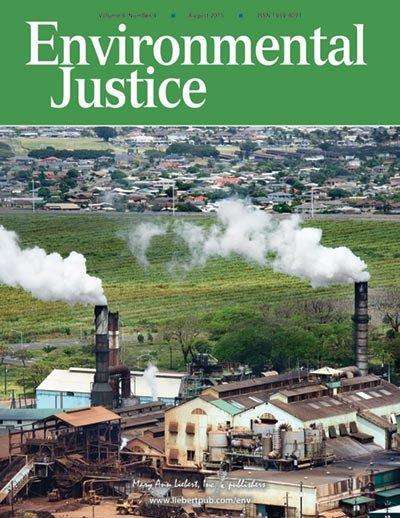Basic energy rights for low-income populations proposed

Low-income populations deserve basic energy rights to protect them from "energy insecurity" and the environmental and related health risks from living in "energy sacrifice zones" where energy is produced. The disproportionate burden these vulnerable communities bear across the continuum of energy supply and demand is discussed in a provocative article in Environmental Justice.
In "Sacrifice Along the Energy Continuum: A Call for Energy Justice," Diana Hernández, PhD, Mailman School of Public Health, Columbia University (New York, NY) compares two U.S. communities: Dimock, PA, a rural township, and Detroit, MI, a major urban area. Dr. Hernández described Dimock, recognized as "ground zero" in the fracking debate over natural gas and oil production, as an energy sacrifice zone. In contrast, in Detroit, where more a third of low-income residents either have fallen behind on utility payments or experienced a utility shut-off, this vulnerable population endures energy insecurity.
"Dr. Hernández's article addresses the challenges of ameliorating global climate change as we develop or change to alternative energy solutions," says Environmental Justice Editor-in-Chief Sylvia Hood Washington, PhD, MSE, MPH, and a LEED AP, and Sustainability Director, Environmental Health Research Associates, LLC. "Environmental and climate justice will be achieved only when we are able to minimize the environmental costs in energy production and energy access to all vulnerable communities.
More information: The article is available free on the Environmental Justice website until September 21, 2015.
Provided by Mary Ann Liebert, Inc













